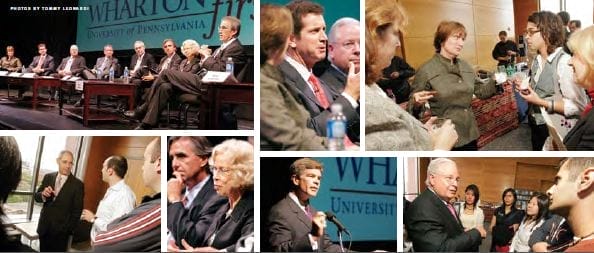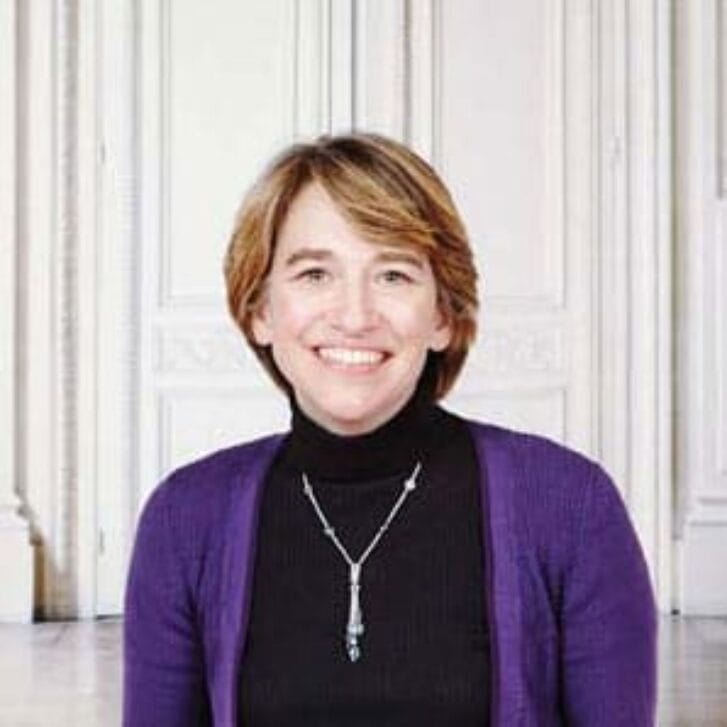“In our business, if you’re not innovating, you’re losing,” said Seth Waugh, CEO of Deutsche Bank Americas, at a roundtable discussion of business leaders and Wharton faculty, held on September 15, 2006, to mark the 125th anniversary of the first day of classes at Wharton on September 15, 1881. The panel, led by Wharton Professor Michael Useem, discussed the key elements of business leadership in an environment of global change.
The panel offered three main pieces of advice about business leadership:
1. Innovation Is Hard Work.
“If you’re waiting for a ‘Eureka!,’ you’re never going to have an innovation,” said Wharton Real Estate Professor Peter Linneman. “It’s all hard work, showing up every day, moving the plans around, studying the market.”
The panelists stressed the importance of innovation in a world of technological change and global competition. “You have to get out in front of consumer behavior,” said C. Robert Henrikson, AMP’90, chairman, president, and CEO of MetLife, “because everyone else is chasing each other.” Yet they emphasized that a creative innovation, in the words of Alex Gorsky, WG’96, CEO of Novartis North America, is “not that ‘aha’ moment. It’s a lot of repetition and redundancy.”
2. Stay Flexible.
“You have to be open to the moment,” explained real estate developer Jeffrey Katz, WG’71, “because the marketplace is extremely rapid. Unless you can react to it right away, you’ll be reading about it next week.”
Business leaders therefore have to keep their organizations flexible enough to allow creativity, even as the companies expand and grow. “When you are a large enterprise,” said Novartis’ Gorsky, “there are tremendous obstacles to getting ideas accelerated and moved through the organization. “You’ve got to be vigilant to cut through bureaucracy so that good ideas can get through. Bigger is not necessarily better. If you have 10 scientists in a room heading down the wrong path, they’re still heading down the wrong path.”
3. Use Your Emotional Intelligence
“Future leaders who are really outstanding are going to have an unusually high degree of emotional intelligence,” said Connie Duckworth, WG’79, a former Managing Director of Goldman Sachs who now works creating economic opportunities for rural women in Afghanistan. “Businesses are driven by client relationships, and you have to be able to be sensitive to people that come from very different backgrounds, not only multicultural but also multigenerational.”
“Do good, do well,” echoed Gorsky. “If you keep that in the back of your mind, if you’re passionate about what you do, you will be innovative. We’ve got a responsibility as senior leaders to make sure that we’re actively ensuring that our organizations are doing things in the right way.”


























